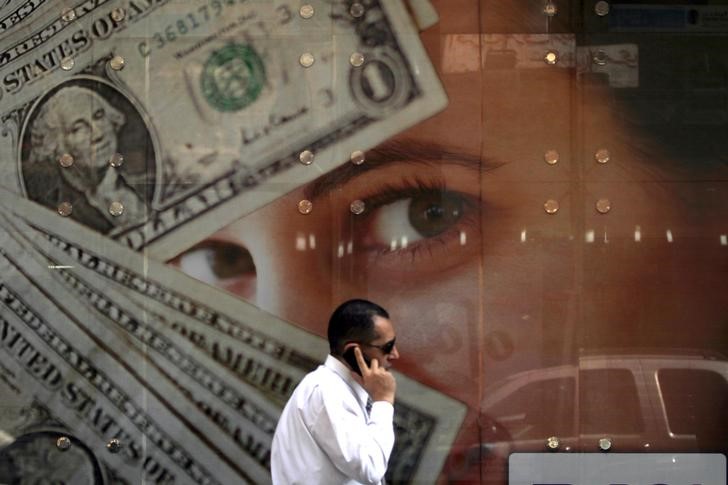Investing.com - The dollar rose against its rivals Friday as trade concerns returned after President Donald Trump reportedly told aides to move ahead with tariffs on China, while signs of ongoing U.S. consumer strength also lifted sentiment.
The U.S. dollar index, which measures the greenback against a trade-weighted basket of six major currencies, rose by 0.38% to 94.89.
Trump instructed aides on Thursday to proceed with tariffs on about $200 billion more in Chinese products, but the announcement has been delayed as the administration considers revisions based on concerns raised in public comments, Bloomberg reported, citing sources.
The prospect of further trade penalties on Beijing propped up demand for the greenback, as traders bet the U.S. economy would be able to better weather a trade war storm than China's.
The biggest reaction, however, was seen in the trade-war proxy AUD/JPY, which fell 0.32% to 80.25.
The Australian economy relies heavily on exporting raw materials (primarily metals), particularly to China, which accounts for about a third of Australian exports every year.
The risk-sensitive USD/JPY rose 0.09% to Y112.02.
The greenback's rise was also supported by upward revisions to July's retail sales data, which overshadowed soft data for August, and signalled underlying consumer strength.
The Commerce Department said on Friday that retail sales rose 0.1% last month, but July's print was revised upward to 0.7%. Retail sales excluding autos was revised to a 0.9% gain for July.
The dollar's recent strength, however, has not met with optimism from all quarters as some analysts expressed concerns that the upcoming midterms could spell trouble.
"Political uncertainty over the midterms makes the sharply rising U.S. 'twin deficits' a ticking time bomb for the dollar," said ING foreign exchange strategist Viraj Patel.
Elsewhere, GBP/USD fell 0.26% to $1.3074, while EUR'/USD fell 0.46% to $1.1636
USD/CAD rose 0.33% to C$1.3040 as the loonie has come under pressure amid fading hopes for a trade agreement between the U.S. and Canada.
